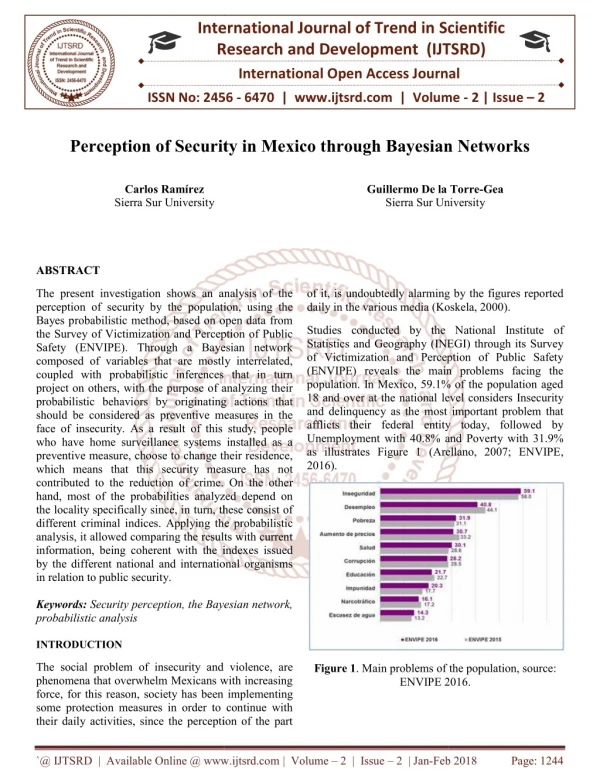Perception of Security in Mexico through Bayesian Networks
The present investigation shows an analysis of the perception of security by the population, using the Bayes probabilistic method, based on open data from the Survey of Victimization and Perception of Public Safety ENVIPE . Through a Bayesian network composed of variables that are mostly interrelated, coupled with probabilistic inferences that in turn project on others, with the purpose of analyzing their probabilistic behaviors by originating actions that should be considered as preventive measures in the face of insecurity. As a result of this study, people who have home surveillance systems installed as a preventive measure, choose to change their residence, which means that this security measure has not contributed to the reduction of crime. On the other hand, most of the probabilities analyzed depend on the locality specifically since, in turn, these consist of different criminal indices. Applying the probabilistic analysis, it allowed comparing the results with current information, being coherent with the indexes issued by the different national and international organisms in relation to public security. Carlos Ramu00c3u00adrez | Guillermo De la Torre-Gea "Perception of Security in Mexico through Bayesian Networks" Published in International Journal of Trend in Scientific Research and Development (ijtsrd), ISSN: 2456-6470, Volume-2 | Issue-2 , February 2018, URL: https://www.ijtsrd.com/papers/ijtsrd10702.pdf Paper URL: https://www.ijtsrd.com/other-scientific-research-area/other/10702/perception-of-security-in-mexico-through-bayesian-networks/carlos-ramu00edrez
★
★
★
★
★
104 views • 9 slides

